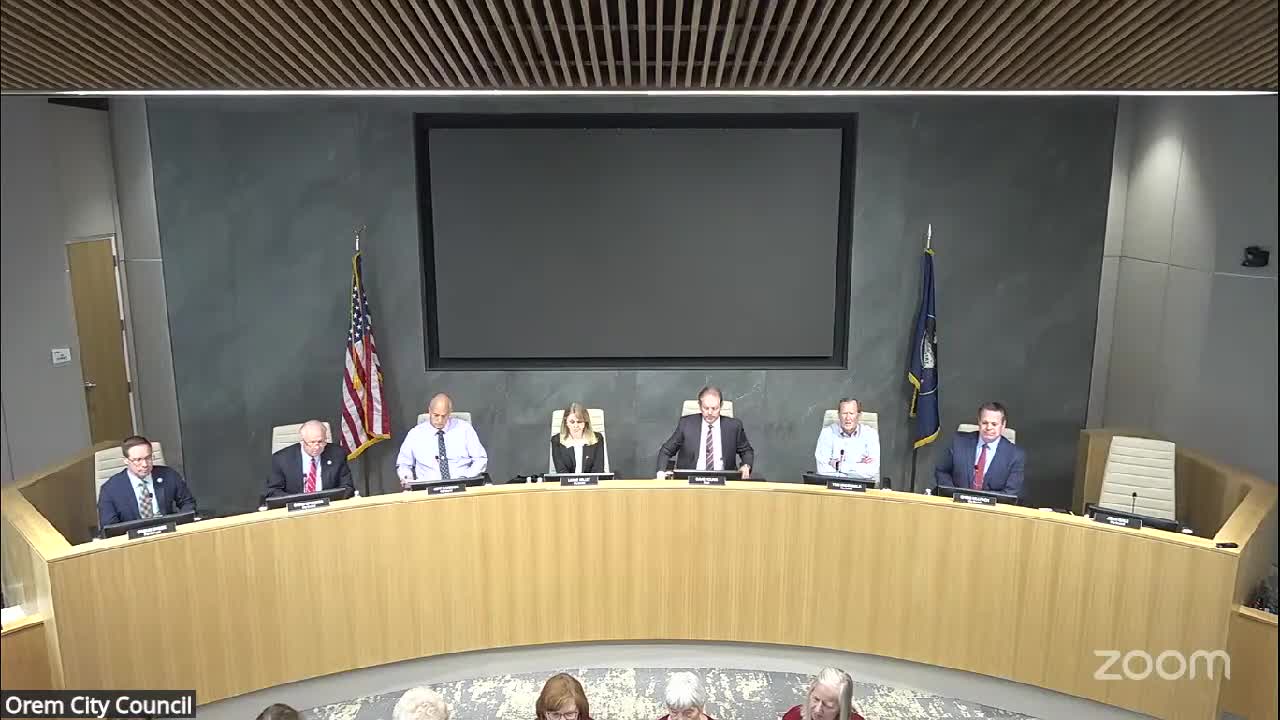Article not found
This article is no longer available. But don't worry—we've gathered other articles that discuss the same topic.
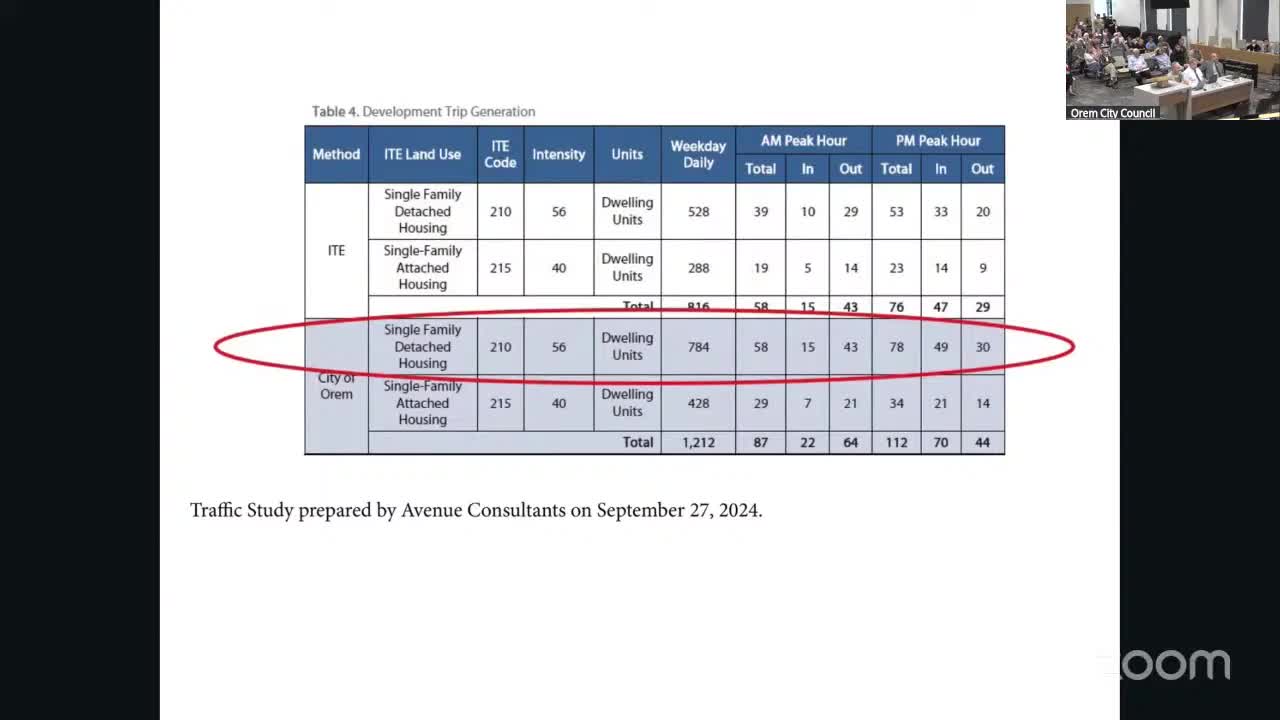
Orem releases tentative 2025–26 budget; utility base-rate increases proposed for water and sewer
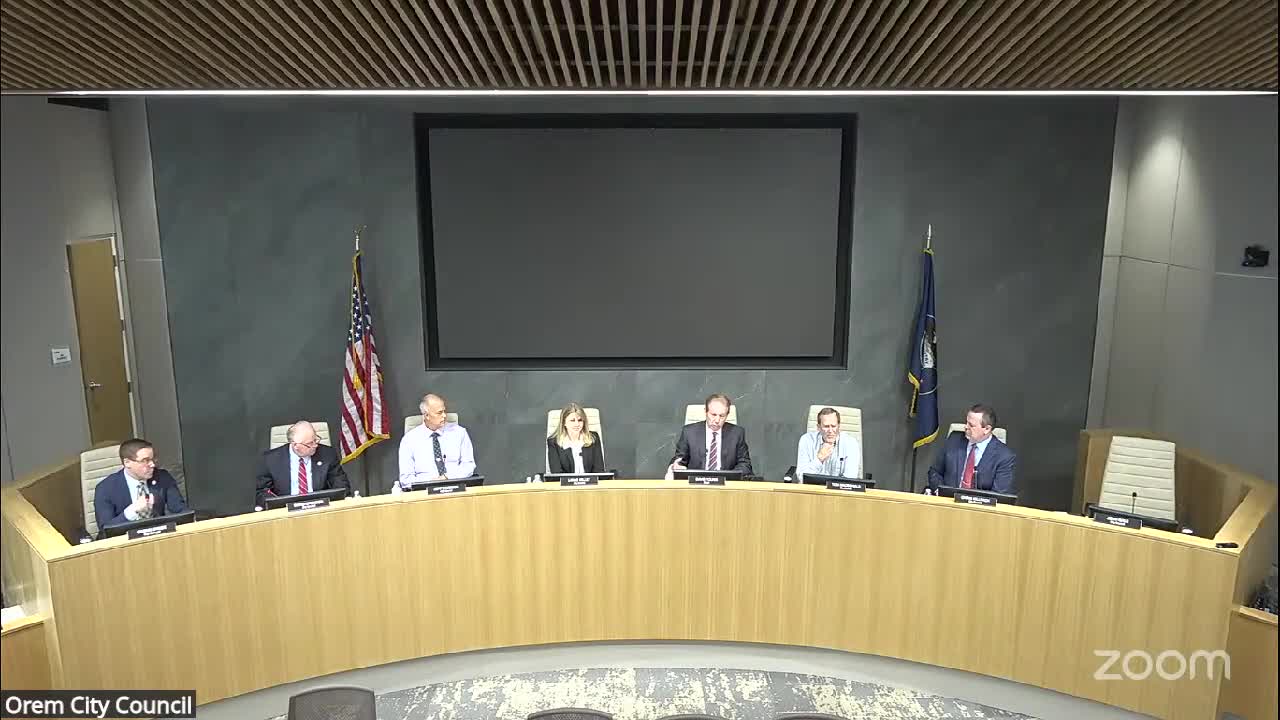
Orem residents, hosts flood council with short-term rental remarks as work continues on ordinance
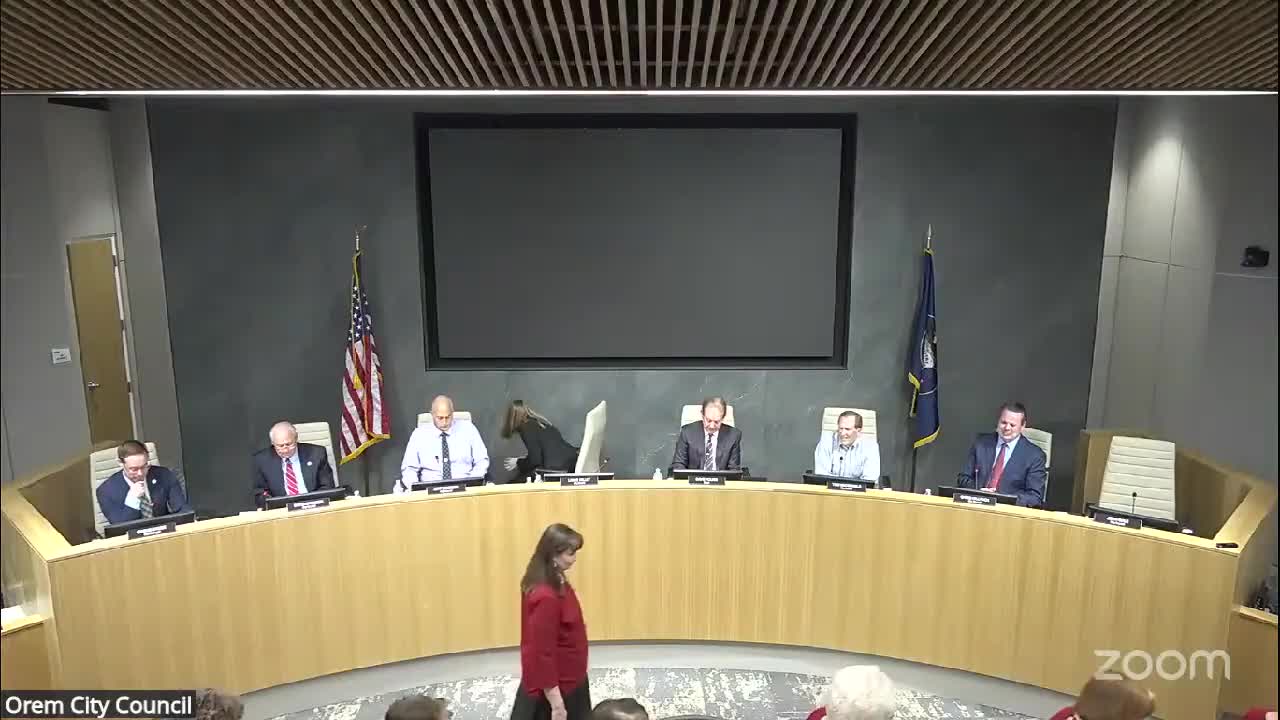
Council approves Ken Garf rezoning for dealership parking; development agreement includes masonry fence and landscaping
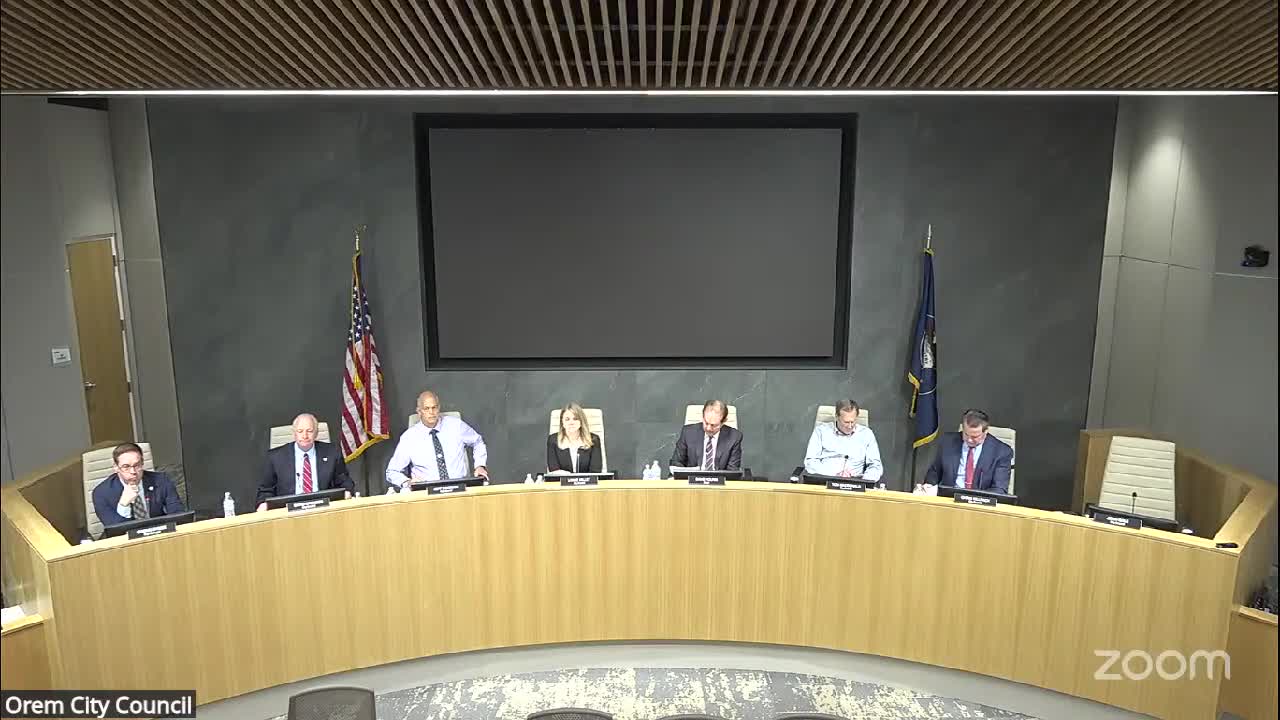
Orem council approves rezoning of Wilkerson Farm after hours of public comment
